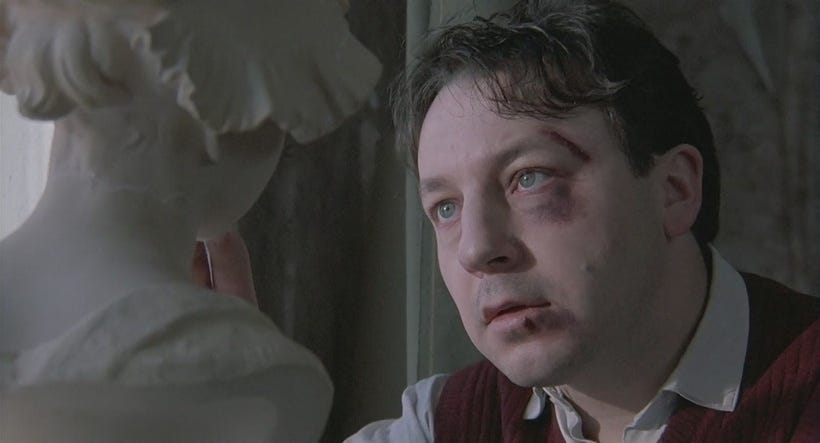Three Colours: White (Krzysztof Kieślowski, 1994)
by Elena Lazic
It is tempting when writing about the work of Krzysztof Kieślowski to trade in very big concepts, which ultimately tell us little about the films themselves. A Kieślowski film cannot simply be a love story, it is about love. It isn’t that his films don’t invite this kind of abstract consideration, or that they aren’t profound works on the very nature of love, death, murder, etc — one of them is actually titled A Short Film About Love (1988). And all of them do transcend the trivial and the anecdote to reach deeper poetic truths, making our daily grievances seem comparatively small, and our very existence like a divine gift.
The problem with how to write about them is that Kieślowski’s poetry lies precisely in that transcendence, in the way the many small though never trivial or insignificant details that make up these films somehow build to such profound ideas and vast concepts. It isn’t enough to simply name the huge, beautiful, deeply humane themes that the films explore, in order to give a sense of how Kieślowski operates his magic.
Keep reading with a 7-day free trial
Subscribe to The Animus Substack to keep reading this post and get 7 days of free access to the full post archives.




